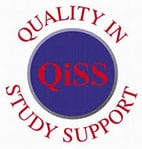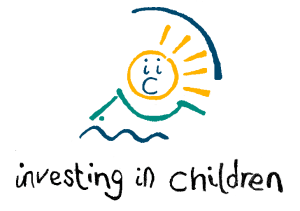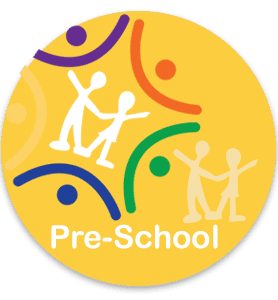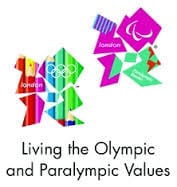Phonics and Reading INTENT
At Bearpark, we use Essential Letters and Sounds to teach children to read in EYFS and KS1. It teaches phonics in a systematic way, driving up standards in reading and writing and is for two to seven year olds learning to read and write. We teach pre-reading (phase 1) through songs, vocabulary and modelled language through structured play and continuous provision.
“To teach word reading and spelling successfully, teachers need to understand the principles underpinning the teaching of word reading (decoding) and spelling (encoding). This should include understanding how the alphabetic code of English represents the sounds (phonemes) of the language with single letters and groups of letters (graphemes).”
The Reading Framework (DfE, July 2023)
At Bearpark Primary, we are passionate about ensuring that all children become confident and enthusiastic readers and writers. The Essential Letters and Sounds (ELS) phonics programme provides the foundations of learning to make the development into fluent reading and writing easier. Children learn to read fluently and at speed so they can focus on developing their skills in comprehension, vocabulary and spelling. Through ELS phonics children learn a simple alphabetic code followed by a more complex code. All reading books progress cumulatively, matched to the sounds children are learning and already know. The teaching of phonics is a high priority and is taught daily through Early Years and Key Stage 1.
EYFS
Nursery
We teach pre-reading (phase 1) through songs, vocabulary and modelled language, through structured play and continuous provision.
Reception
At Bearpark, we use Essential Letters and Sounds to teach children to read in EYFS and KS1. It teaches phonics in a systematic way, driving up standards in reading and writing. Continuous provision and adult conversations promote and extend language and vocabulary development.
Parents Guide to Phonics in Bearpark Primary and Nursery
Year 1
During year 1, children build on work from the Early Years Foundation Stage, making sure that they can sound and blend unfamiliar printed words quickly and accurately using the phonic knowledge and skills that they have already learnt. Pupils continue to learn new grapheme-phoneme correspondences (GPCs) and revise and consolidate those learnt earlier. The understanding that the letter(s) on the page represent the sounds in spoken words should underpin pupils’ reading and spelling of all words. This includes common words containing unusual GPCs. The term ‘common exception words’ is used throughout the programmes of study for such words.
Alongside this knowledge of GPCs, pupils develop the skill of blending the sounds
into words for reading and establish the habit of applying this skill whenever they
encounter new words. This will be supported by practice in reading books consistent with their developing phonic knowledge and skill and their knowledge of common exception words. At the same time they will hear, share and discuss a wide range of high quality books to develop a love of reading and broaden their vocabulary.
Pupils are helped to read words without overt sounding and blending after a few
encounters. Those who are slow to develop this skill have extra practice.
Year 2
By the beginning of year 2, pupils are able to read all common graphemes. They
should be able to read unfamiliar words containing these graphemes, accurately and
without undue hesitation, by sounding them out in books that are matched closely to each pupil’s level of word reading knowledge. They are able to read many common
words containing GPCs taught so far [for example, shout, hand, stop, or dream], without needing to blend the sounds out loud first. Pupils’ reading of common exception words [for example, you, could, many, or people] should be secure. Pupils will increase their fluency by being able to read these words easily and automatically. Finally, pupils will retell some familiar stories that have been read to and discussed with them or that they have acted out during year 1.
During year 2, teachers focus on establishing pupils’ accurate and speedy word reading skills. Pupils listen to and discuss a wide range of stories, poems, plays and information books; this includes whole books. The sooner that pupils can read well and do so frequently, the sooner they will be able to increase their vocabulary, comprehension and their knowledge across the wider curriculum.
Years 3 and 4
By the beginning of year 3, pupils read books written at an age appropriate interest level. They should be able to read them accurately and at a speed that is sufficient for them to focus on understanding what they read rather than on decoding individual words. They should be able to decode most new words outside their spoken vocabulary, making a good approximation to the word’s pronunciation. As their decoding skills become increasingly secure, teaching is directed more towards developing their vocabulary and the breadth and depth of their reading, making sure that they become independent, fluent and enthusiastic readers who read widely and frequently. They should be developing their understanding and enjoyment of stories, poetry, plays and non-fiction, and learning to read silently. They also develop their knowledge and skills in reading non-fiction about a wide range of subjects. They learn to justify their views about what they have read: with support at the start of year 3 and increasingly independently by the end of year 4.
Years 5 and 6
By the beginning of year 5, pupils are able to read aloud a wider range of poetry and
books written at an age-appropriate interest level with accuracy and at a reasonable speaking pace. They should be able to read most words effortlessly and to work out how to pronounce unfamiliar written words with increasing automaticity. If the pronunciation sounds unfamiliar, they should ask for help in determining both the meaning of the word and how to pronounce it correctly.
They should be able to prepare readings, with appropriate intonation to show their
understanding, and should be able to summarise and present a familiar story in their own words. They should be reading widely and frequently, outside as well as in school, for pleasure and information. They should be able to read silently, with good understanding, inferring the meanings of unfamiliar words, and then discuss what they have read.
From Year 2 to Year 6, children use Accelerated Reader. This is a progressive scheme which helps children to develop a better understanding about what they are reading. Staff can monitor the progress of children as individuals.
We have parents and governors who come into our school weekly to hear readers and we encourage all of our children to read at home.
We have spaces to read all over our school- even outdoors in our reading shed!
Timetabling reading is important to us at Bearpark. Children enjoy shared reading in class, paired reading and being read to by their class teacher.
If you’d like to know more about how we teach phonics or reading to your child in school, then do let us know and we’d be delighted to take you through the process of supporting your child at home.







